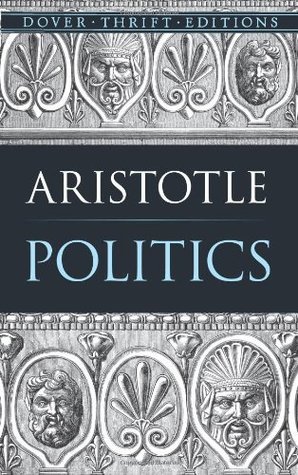TL;DR
Aristotle's 'Politics' explores the relationship between individuals and the state, the ideal state, and the purpose of wealth, offering profound insights into Greek political theory.
What is Politics about
'Politics' by Aristotle, translated by Benjamin Jowett, delves into the intricate relationship between the individual and the state. The book addresses fundamental questions about the ideal state, the most desirable life for its citizens, and the purpose of wealth. Heavily influenced by but also critical of Plato's works, 'Politics' represents a culmination of Aristotle's lifetime of thought and observation on political science. It is a foundational text for anyone interested in Greek thought, political theory, and the concept of the ideal state, offering a blend of encyclopedic knowledge and profound speculation.
Politics 6 Key Takeaways
Relationship between the Individual and the State
Aristotle examines how individuals relate to the state, emphasizing that a good state should nurture virtuous and ethical citizens.
The Ideal State
The book explores what constitutes an ideal state and how it can provide the most desirable life for its citizens, focusing on justice and the common good.
Purpose of Wealth
Aristotle discusses the role of wealth in society, arguing that its purpose should be to support a good and virtuous life, rather than an end in itself.
Critique of Plato
While influenced by Plato, Aristotle critically examines and diverges from Plato's 'Republic' and 'Laws,' offering his own theories on governance.
Education and Virtue
Aristotle highlights the importance of education in cultivating virtuous citizens, who are essential for a well-functioning state.
Types of Government
The book categorizes different forms of government, including monarchies, aristocracies, and democracies, and evaluates their strengths and weaknesses.
Top Politics Quotes
- 'Man is by nature a political animal.'
- 'It is the mark of an educated mind to be able to entertain a thought without accepting it.'
Who should read Politics?
This book is essential reading for students, teachers, scholars, and anyone interested in Greek thought, political theory, and the concept of the ideal state.
Politics Best Reviews
- 'Encyclopaedic knowledge has never, before or since, gone hand in hand with a logic so masculine or with speculation so profound.' - H. W. C. Davis
- 'Aristotle’s 'Politics' remains a cornerstone of political thought, offering timeless insights into governance and society.' - The New York Times
People also liked these summaries
Politics FAQs
What is the book of Aristotle on political science?
Aristotle's major treatise on political science is 'Politics,' where he explores the laws of the city, the actions of its citizens, and leadership.
What is Aristotle's view on politics?
Aristotle views politics as a means to foster the good life for its citizens, which includes cultivating virtues like courage and temperance.
What is Aristotle's Politics Book II about?
In Book II, Aristotle critiques existing theories of government and argues for the need for a new, pragmatic theory of governance.
Who is the father of politics?
Aristotle is often regarded as the father of political science due to his foundational contributions to the field.
